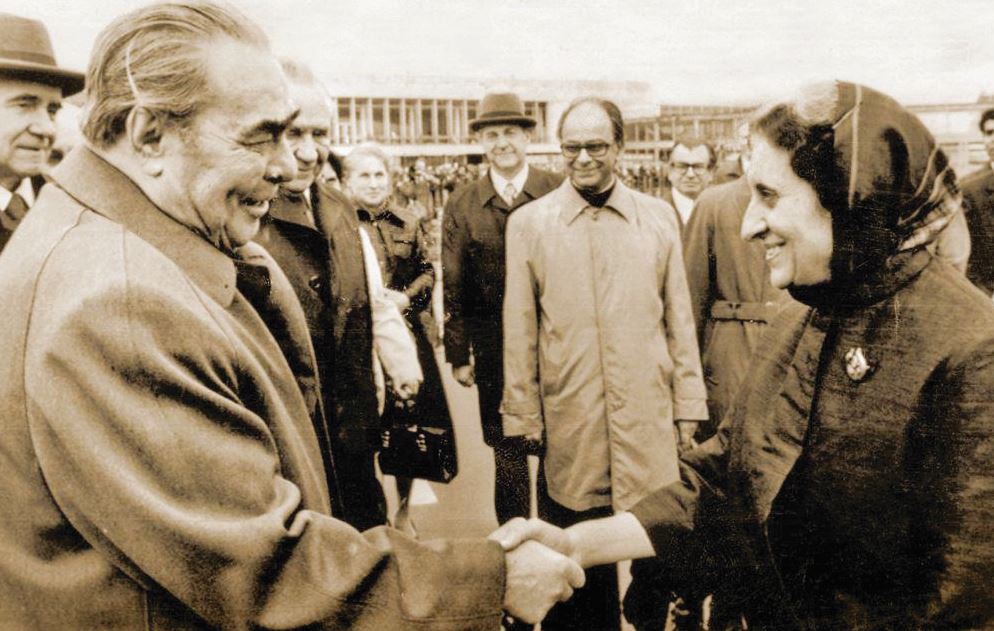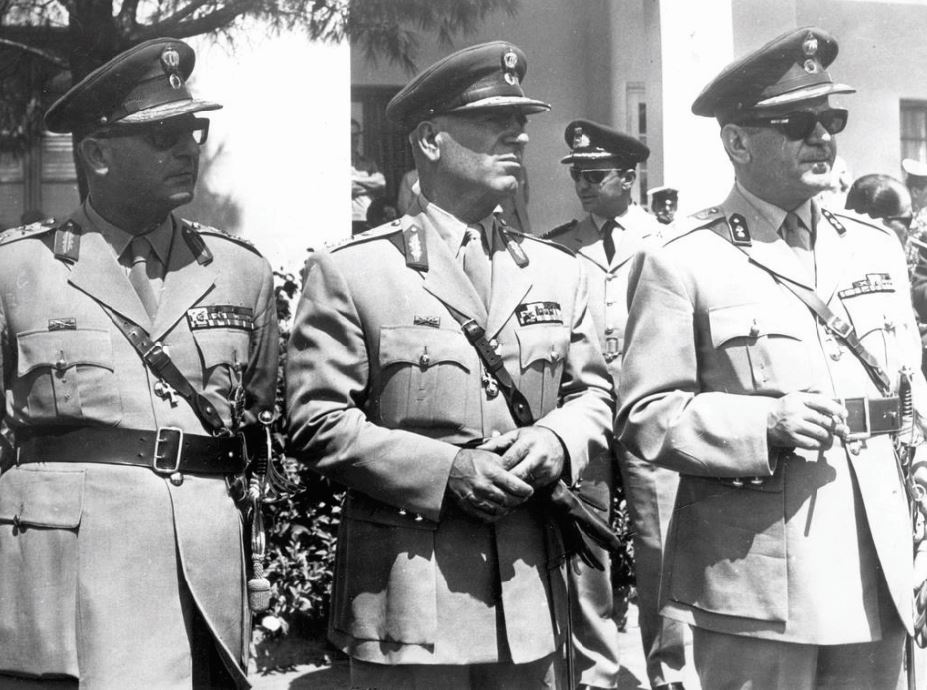Nothing is strange in the murky world of espionage. Although the spy may be as old as history, and very apolitical, it was in the 20th century that official intelligence organisations were founded, and spying was established as a profession
By Sankar Ray
- Time was when literary and cultural talents were recruited for espionagE
- Think of Giovanni Giacomo Casanova whose romantic exploits made the name Casanova synonymous with “libertine”
- KGB’s motive was to influence the economic policies of the Indian government and spread success stories of the Soviet Union
- William Wordsworth was a spy in France. Whittaker Chambers, an Objectivist poet was a member of Louis Zukofsky’s group
EXTREMELY incredible as it appears, Geoffrey Chaucer, the 14th-century literary giant and the father of English literature was a spy on the Continent for John of Gaunt. Time was when literary and cultural talents were recruited for espionage. Sir Francis Walsingham was the principal secretary of virgin Queen Elizabeth I and was a great spymaster and Sir Philip Sidney’s father-in-law roped in Christopher Marlowe to inform English students who were enjoying Catholic hospitality in Rheims. Walsingham proved himself a skilled statesman, thanks to his acumen in detecting and foiling conspiracies against Elizabeth’s life. His vigilance uncovered Francis Throckmorton’s plot—involving France and Spain—to free Elizabeth’s prisoner, the Catholic Mary Stuart (Mary, Queen of Scots).
Nothing is strange in the murky world of espionage Not at all strange, Marlowe was murdered by Walsingham’s men because of his involvement with Sir Walter Raleigh, another spy, in a conspiracy to depose the Queen, believed literary world. The way the murder was neatly staged, having looked like a barroom brawl, was unusual. William Wordsworth was a spy in France. Whittaker Chambers started as an Objectivist poet but was a member of Louis Zukofsky’s group.
LITERARY SHADOWING
Espionage is a surreptitious phenomenon to interfere into the governance of the State and hence cannot be apolitical-“ungentlemanly warfare”, as defined by Ian Flemming.
Citing this in an essay three decades ago in New York Times, ‘Tinker, Tailor, Poet, Spy: Tales of Literary Espionage’, Eliot Weinberger wrote, “Split between the power of the poem and the powerlessness of the poet in society, poets have lived the lives of spies. They have believed they are the unacknowledged legislators and secret police. They have been attracted to secret societies, from the (possibly apocryphal) Elizabethan School of Night (Raleigh, Marlowe and George Chapman as well as the alchemist Walter Warner) to Yeats’s Golden Dawn.

Split between the power of the poem and the powerlessness of the poet in society, poets have lived the lives of spies. They have believed they are the unacknowledged legislators and secret police
They have preferred to publish anonymously or under pseudonyms. They have been — like Milton writing his elegy before he had a suitable corpse — masters at the counterfeiting of emotions. They have encoded private messages and secret formulas into their poems. They believed they are serving great powers: Stalin, Mussolini, the revolution, and the church. They have walked, like Charles Baudelaire in Paris, Federico Garcia Lorca or Charles Reznikoff in New York, invisibly through the city, watching and listening. They have sat alone in their rooms, imagining the great plots unfolding outside”.
Special Branch file of The National Archives and MI5, UK, revealed George Orwell (real name: Eric Arthur Blair) drew the attention of Special Branch in early 1936, when he was ‘on location’, researching ‘The Road to Wigan Pier’, investigating the harsh living conditions among the working class in Lancashire and Yorkshire. The renowned author and great prose writer, especially famed for Nineteen Eighty-four and Animal Farm, both best-sellers for decades together, Orwell used to attend meetings of the Communist Party of Great Britain. But there is no confirmation of the allegation that he worked as a sleuth. The spy network was necessitated by imperialist Britain to block the communist revolution, and Soviet subversion within Britain, ‘an enemy within’. This panic can be traced back to the Bolshevik revolution of 1917.
Ezra Pound had met with low-level bureaucrats and high-level avant-gardists to travel to New Haven to visit a Yale student named James Jesus Angleton, then an undergraduate who came in touch with E E Cummings, Marianne Moore, Thomas Mann with any other literary stalwarts. He shared his enthusiasm for Mussolini. He was picked up by Pearson, a Boston aristocrat and co-author of “Poets of the English Language” anthologies with W H Auden. Pearson was a Nazi sympathizer until the invasion of Poland who in 1943 was sent to London to head X-2, the counterintelligence branch of the Office of Strategic Services, the wartime spy network. There he was taught the British “double cross” system of psychologically coercing captured enemy agents into working for one’s own side. His counterpart (and nemesis) at the British MI6 was Kim Philby, a double agent for the erstwhile Soviet Union. Philby’s code name was Puritan. He is regarded as “the father of American counter-intelligence.”
FAMOUS INTELLIGENCE AGENCIES
Among the most well-known (or infamous) official espionage outfits have been the Central Intelligence Agency(CIA) of the United States of America, KGB (Komitet Gosudarstvennoy Bezopasnosti, meaning security agency) of the Soviet Union and SAVAK is the Roman abbreviation of “Sazman-e Etelaat Va Amniat Keshvar” (Organisation of Intelligence and Security of the Country) in Persian (Farsi) letters.
The KGB and SAVAK were folded up while the CIA is alive and very much kicking. KGB was set up on 13 March 1954, after the death of Iosif Vissarionovich Stalin and shut down on 3 December 1991 following the dissolution of the Soviet Union. It was later succeeded in Russia by the Foreign Intelligence Service (SVR) and what would later become the Federal Security Service (FSB).
SAVAK was set up by Mohammad Reza Shah with the help of the CIA and Mossad of Israel (Mossad Merkazi le-Modiin ule-Tafkidim Meyuhadimin Hebrew meaning “Central Institute for Intelligence and Special Operations” the national intelligence agency of Israel). SAVAK was set up in 1957 and abolished after the Iranian Revolution of 1979. SAVAK had 5,300 agents at its peak, used mainly in trampling dissent inside Iran. It had the power to censor the media, screen applicants for government jobs and use all means necessary, including torture, to hunt down dissidents.
Unlike Cheka, GPU, NKGB, NKVD and KGB which were used in the Stalin era in imprisonment and execution of dissenters and those that Stalin thought of as adversaries ( vividly written by Victor Serge, a prominent official of the Communist International right from when it was set up by Vladimir Illyich Lenin in 1919 in his memoirs Mémoires d’un révolutionnaire 1901-1941, published posthumously during Stalin’s lifetime; followed by an English translation in the mid-1050s). Lenin promised around April 1971 that there won’t be any secret police agency but went back on his words as Cheka and NKVD were set up when he was the head of the Bolshevik government,
HONEY TRAP
KGB and CIA had been active in India. While KGB’s main motive was to influence the economic and industrial policies of the Indian government and spread the success stories of the Soviet Union, the CIA mainly indulge in patronising and funding anti-communists and anti-communism. Anti-Sovietism was one of the ideological aims of the CIA. It made penetration into writers, journalists and especially non-communist politicians albeit too secretly to be exposed.
The role of the KGB was stunned by, is a collection of handwritten notes, secretly made by the KGB archivist Vasili Mitrokhin who worked for thirty years under the KGB and made them public after defecting to the United Kingdom in 1992 revealed that neither Jawaharlal Nehru nor the Intelligence Bureau of Government of India knew how thoroughly the Indian embassy in Moscow was being penetrated by the KGB, ‘using its usual varieties of the honey trap.’

Indira Gandhi never realised that the KGB’s first prolonged contact with her occurred during her first visit to the Soviet Union, a few months after Stalin’s death in 1953
The Indian diplomat PRO-KHOR was recruited, probably in the early 1950s, with the help of a female swallow, codenamed NEVEROVA, who presumably seduced him. The KGB was clearly pleased with the material which PRO-KHOR provided, which included on two occasions the embassy code book and deciphering tables since in 1954 it increased his monthly payments from 1,000 to 4,000 rupees.
Another Indian diplomat, RADAR, was recruited in 1956, also with the assistance of a swallow, who on this occasion claimed (probably falsely) to be pregnant. A third KGB swallow persuaded a cypher clerk in the Indian embassy, ARTUR, to go heavily into debt in order to make it easier to compromise him. He was recruited as an agent in 1957 after being trapped (probably in illegal currency dealing) by a KGB officer posing as a black marketeer. As a result of these and other penetrations of the embassy, Soviet code breakers were probably able to decrypt substantial numbers of Indian diplomatic communications. But the revelations made by the Mitrokhin Archives were considerably exaggerated. It had been slanderous to some extent.
The report in the Times, based on Christopher Andrew’s book on KGB spy Mitrokhin -The Mitrokhin Archive claims that “a huge cache of KGB records smuggled out of Moscow after the fall of communism reveals that in the 1970s India was one of the countries most successfully penetrated by Soviet intelligence. A number of senior KGB officers have testified that, under Indira Gandhi, India was one of their priority targets.” “Indira Gandhi never realised that the KGB’s first prolonged contact with her occurred during her first visit to the Soviet Union, a few months after Stalin’s death in 1953. As well as keeping her under continuous surveillance, the Centre (KGB headquarters) also surrounded her with handsome, attentive male admirers.”
Some senior intelligence officers, associated with Indian intelligence agencies, especially in external areas in the 1980s and 1990s were of the view that the CIA moles and operations were much more spread than the KGB but the latter functioned more subtly and penetratively albeit working in limited areas.
France-based Sinologist Claude Arpi in an article in 2014 exposed the US government and the CIA which looked forward to a US-India collaboration in supporting the Tibetan guerrilla operations that were both inside and outside Tibet (meaning India’s border areas). The chief of Indian intelligence B N Mullik was believed to be inclined to work with the CIA.
James Critchfield of the CIA’s Near East Division wrote “I went into a huddle with Mullik and Des (FitzGerald, head of CIA’s Far East Division) and we started coming up with all these schemes against the Chinese.”
The US-India collaboration was facilitated after the resignation of India’s Defence Minister Vengalil Krishnan Krishna Menon, an academic, politician, and non-career diplomat and very close to then Prime Minister Jawaharlal Nehru.
The then US Secretary of State Dean Rusk offered to help the Indian government, “We are prepared to dispatch twelve or more C-130s at once to assist in any necessary movement of forces and equipment to the Assam area or to Ladakh. This would be a US operation with planes, and crew support. Request your urgent advice on whether Indians are prepared to use this transport immediately. Also, the earliest estimates are men and tonnage involved. Special airlift team being dispatched at once.”

Neither Jawaharlal Nehru nor the Intelligence Bureau of the Government of India knew how thoroughly the Indian embassy in Moscow was being penetrated by the KGB, ‘using its usual varieties of the honey trap’
The CIA activities were made public by the Communist Party of India by bringing out the book I was a CIA Agent in India by John Smith in the early 1970s. It created a furore and led to the shut-down of the Congress for Cultural Freedom, whose Milan Congress (1955) was alleged to have been funded by the CIA. A prestigious monthly Encounter whose co-editor was the famous English poet Stephen Spender was closed down for alleged funding by the CIA.
“In the 1960s and 1970s, the CIA was desperate not to let the KGB have the run of play in India. Philip Knightley, author of The Second Oldest Profession: Spies and Spying in the Twentieth Century, became managing editor of Imprint. Based out of Mumbai, where Knightley lived at the time, this literary magazine was sold for one rupee. The content included condensed versions of American bestsellers. The magazine was owned by two Americans, Gloria and Arthur Hale. Twenty years later, in the 1980s, Knightley met Harry Rositzke, former chief of the CIA’s Soviet Bloc division in Washington while working on a documentary. It was during this meeting that Rositzke disclosed to Knightley that he knew Imprint very well since it was one of his little operations when he was CIA station chief from 1960–64!
Imprint was intended to counter the influence of the numerous cheap and glossy Soviet magazines that were easily available in India”, wrote Vikram Sood, former chief of India’s external intelligence agency, Research and Analysis Wing in his book The Unending Game: A Former R&AW Chief’s Insights Into Espionage.
LEGENDARY SPIES
There were a few legendary spies in the history of espionage, including double agents. Think of Giovanni Giacomo Casanova whose romantic exploits made the name Casanova synonymous with “libertine.” His autobiography, albeit exaggerated, is a splendid description of 18th-century society in the capitals of Europe.
British army major John André who served as a chief intelligence officer for British commander in chief General Sir Henry Clinton during the American Revolution succeeded in securing the allegiance of American turncoat Benedict Arnold who, having been disillusioned with the American cause, agreed to surrender West Point to the British for £20,000. But André was captured by American militiamen while Arnold managed to flee, leaving André to be hanged as a spy.

In Greece, the CIA participated in bringing in the repressive regime of the colonels In Chile, The Company spent millions to “destabilise” the Allende government and set up the military junta
Who can forget Mata Hari, virtually shorthand for a sultry seductress who cashed in on her beauty and feminine wiles to obtain information? Margaretha Zelle, aka “Mata Hari,” was an exotic dancer who shot into sensational fame, for her sensuality and succession of lovers during World War I. But her espionage activities remain obscure. She was believed, according to one account, that she was living in the Hague in the spring of 1916 when a German military attaché, Major Arnold Kalle, according to the grapevine, offered to pay her for whatever information she could obtain on her next trip to France. After her arrest by the French, she disclosed that she had given some outdated information to a German intelligence officer. The German government publicly exculpated her in 1930, and the French dossier documenting her activities reportedly indicated her innocence. Mata Hari was arrested in a luxury Paris hotel in February 1917, and her closed-door trial took place five months later where she was a convicted spy, and met her end at age 41 at the hands of a firing squad outside Paris on 15 October 1917. Julie Wheelwright, writer of The Fatal Lover: Mata Hari and the Myth of Women in Espionage, writes Mata Hari “symbolised women’s danger, their treacherous desires hidden beneath their rallying cry as mothers of the nation or self-sacrificing nurses.”

Who can forget Mata Hari, virtually shorthand for a sultry seductress who cashed in on her beauty and feminine wiles
to obtain information
Remember the Cambridge spy ring that emerged during the years of the Cold War? Most of them were double agents. It had its roots at the University of Cambridge in the 1930s. A group of disaffected upper-class young men were recruited to become Soviet agents. The four men, Guy Burgess, Kim Philby, Donald Maclean, and Anthony Blunt, held important assignments in various positions of power while working for MI5 and MI6, as well as ambassadorial posts, and each used his position to forward sensitive information to the Soviets. By the time the ring was unravelled in the 1950s, countless state secrets had been spilled.
Philip Burnett Franklin Agee in his book Inside the Company: CIA Diary, wrote candidly, “In the past 25 years, the CIA has been involved in plots to overthrow governments in Iran, the Sudan, Syria, Guatemala, Ecuador, Guyana, Zaire and Ghana.
In Greece, the CIA participated in bringing in the repressive regime of the colonels. In Chile, The Company spent millions to “destabilise” the Allende government and set up the military junta, which has since massacred tens of thousands of workers, students, liberals and leftists.
In Indonesia in 1965, The Company was behind an even bloodier coup, the one that got rid of Sukarno and led to the slaughter of at least 500,000 and possibly 1,000,000 people. In the Dominican Republic, the CIA arranged the assassination of the dictator Rafael Trujillo and later participated in the invasion that prevented the return to power of the liberal ex-president Juan Bosch. In Cuba, The Company paid for and directed the invasion that failed at the Bay of Pigs. Sometime later the CIA was involved in attempts to assassinate Fidel Castro.
It is difficult to believe, or comprehend, that the CIA could be involved in all these subversive activities all over the world”. None could beat the CIA’s records in subversion to deprive developing and underdeveloped countries of their legitimate right to choose their path of development in order to get rid of poverty, distress and all forms of backwardness.

One thought on “Espionage is Ungentlemanly Warfare”